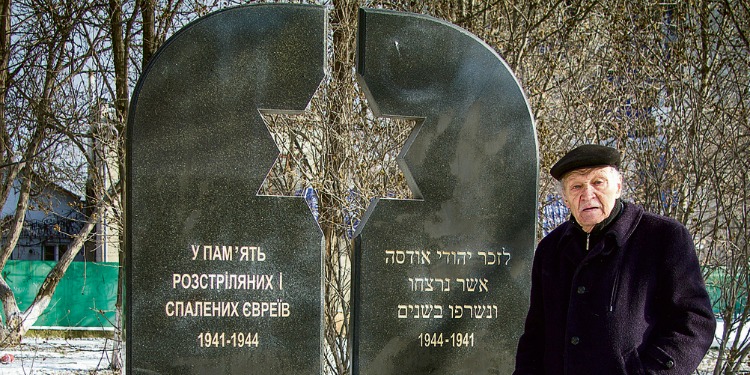‘When I Remember, I Weep’
The Fellowship | February 5, 2018

As those who survived the Holocaust grow older, with many still struggling with poverty even after all the hardships they’ve experience, The Fellowship and our faithful friends continue to support them in their later years – both survivors who live in Israel, as well as elsewhere around the world. One such agin survivor’s story is being told by Ynet News’ Yifat Erlich. 93-year-old Mishka Zaslavsky still lives in Ukraine, where he was the only survivor of the 1941 Odessa massacre:
“A man who does not smoke or drink will die healthy,” Mishka Zaslavsky quotes a well-known Odessa proverb with a chuckle. He began his morning with a small glass of vodka, but he quit smoking 30 years ago, because of the health risk. He can climb up and down the 80 steps to his fifth-floor apartment in the Cheriomoshka neighborhood in Odessa with relative ease. Impressive, because he is 93 years old.
It is bitterly cold outside—minus 14 degrees. A thin layer of snow covers the back yards of destitute Soviet-era homes. Zaslavsky politely refuses everyone who extends a hand to help and climbs into the high car by himself. A year ago, he adopted a new look that gives him charm and attractiveness. “I’m young,” he laughs and he runs his hand through his white ponytail. “Today, young men are growing out their hair.” Despite the style, he is not young, but his mind is sharp, fresh, and refuses to be despondent.
He was born in Odessa in October 1925. His mother Miriam, who was raised in a deeply religious home, summoned the mohel twice. Twice, his father, Abraham, sent the mohel back from whence he came. He refused to have his eldest son circumcised, because he had abandoned religion following the horrors of the First World War. The father’s stubbornness saved his son in the Second World War.
“I was 16 when the Nazis conquered Odessa,” related Mishka. “Dad was drafted into the Red Army, and my mother, with five small children, could not escape to the east. On October 16, I saw my first Nazi soldier.”
At the time, Odessa was known as an important center of Judaism and Zionism. 100,000 of the city’s Jews were able to escape before October 16, 1941, when the German army and their Romanian allies captured the city. About 90,000 Jews were still in the city. Odessa was severed from Ukraine, then a part of the Soviet Union, and declared the capital of Transnistria, territory that Hitler ceded to Romania. The Einsatzkommando, a Romanian intelligence company, and local Ukranian militias succeeded in murdering more than 10,000 Jews in the first few days of the occupation…
